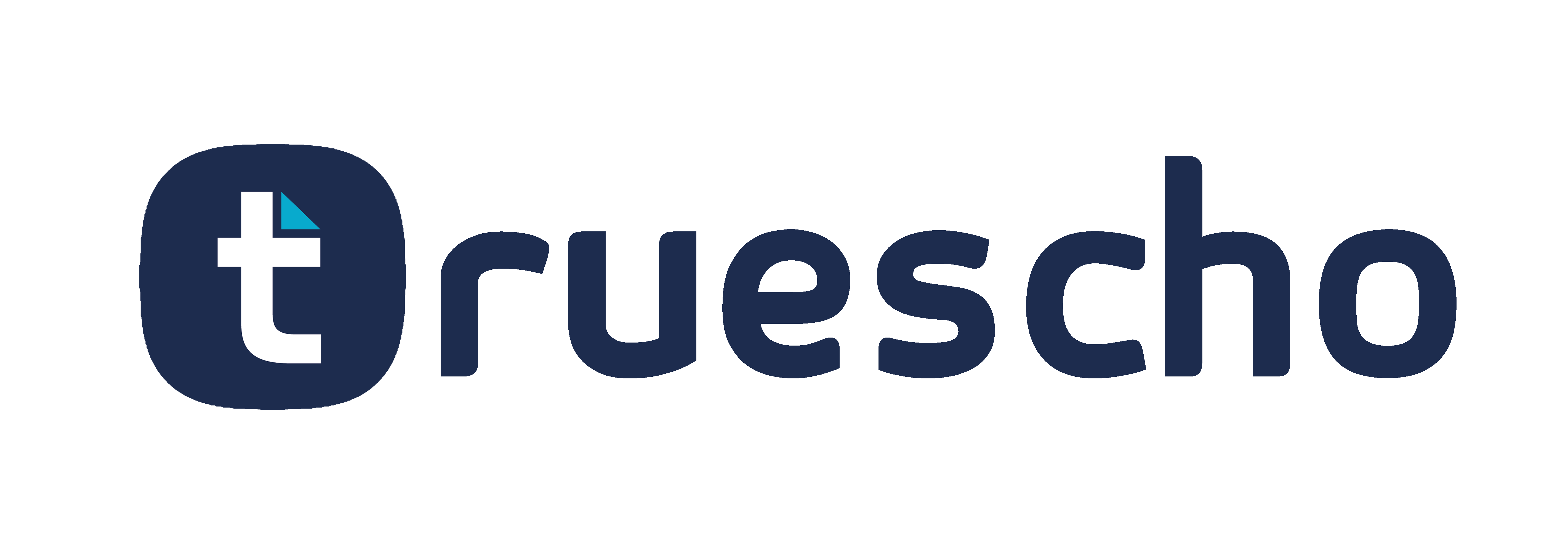Study in Canada 2022-2023:
Study in Canada is considered one of the most popular choice for international students. High quality education with affordable tuition fees is one of the reason for its popularity among study abroad aspirants. More than 700,500 international students came to study in Canada in 2021. Although, they have various options to choose from, most of them prefer to study management and science courses at universities of Canada.
Other reason why international students prefer to study in Canada, as it has vastly different culture and welcomes citizens across the world with no discrimination. Perhaps that’s why QS News Best Student Cities 2022 included 5 cities of this country among top study abroad destinations, including Montreal at 9 and Toronto at 13 place.

Study in Canada for Free
Like some Scandinavian countries and Germany, Canada does not offer free college education. However, there are various ways to reduce the cost of studying in Canada. The first thing you need to do is reduce your spending and increase your income. The good news is you can easily find a well-paying part-time job in Canada.
If you want to study in Canada for free, you can either opt for a university with low tuition fees or get a part-time job. Another way to reduce your expenses is by getting a scholarship. There are several organizations and institutes that offer different types of scholarships to international students.
Here are some universities with low tuition fees:
- Canadian Mennonite University.
- Brandon University.
- Université de Saint-Boniface.
- University of Guelph.
- Memorial University of Newfoundland.
- University of Northern British Columbia.
- Simon Fraser University.
- University of Saskatchewan.
- University of Calgary.

How much does it cost to study in Canada | How much does it cost to study in Canada from Nepal:
Compared to many countries, studying in Canada is very affordable. You will likely need between C$20,000 and C$30,000 annually to cover tuition. This range is an average only and will vary according to the institution and program in which you are enrolled. The costs for housing, food and other living expenses will depend on your location and your own needs, but C$15,000 annually is not an uncommon estimate.
Tuition:
Tuition fees for international students vary across provinces and programs. The table below shows the weighted average tuition fees (in Canadian dollars) for full-time foreign students, by field of study.
| Field of study grouping | Undergraduate | Graduate |
| Education | $12,876 | $15,764 |
| Visual and performing arts, and communications technologies | $25,127 | $14,737 |
| Humanities | $28,676 | $13,667 |
| Social and behavioural sciences | $27,647 | $15,032 |
| Law, legal professions and studies | $33,192 | $17,237 |
| Business management and public administration | $26,680 | $24,693 |
| Executive MBA | Not available | $66,665 |
| Regular MBA | Not available | $38,950 |
| Physical and life sciences and technologies | $31,536 | $15,421 |
| Mathematics, computer and information sciences | $33,012 | $16,647 |
| Engineering | $33,703 | $19,301 |
| Architecture | $26,457 | $23,992 |
| Agriculture, natural resources and conservation | $26,208 | $14,452 |
| Dentistry | $56,621 | $22,472 |
| Medicine | $32,450 | Not available |
| Nursing | $21,922 | $16,168 |
| Optometry | Not available | $14,014 |
| Pharmacy | $40,960 | $12,876 |
| Veterinary medicine | $63,323 | $10,099 |
| Other health, parks, recreation and fitness | $24,626 | $18,551 |
| Personal, protective and transportation services | $20,332 | Not available |
Housing:
Most universities offer on-campus residences for students, some of them specifically for scholars from abroad. But acceptance at a Canadian school does not automatically mean you can get a room in residence. Students must apply separately for on-campus housing, and its cost varies across institutions and will depend on whether or not you want a private room or a meal plan, for example.
Some international students choose to live off-campus in an apartment. Rent for a typical two-bedroom apartment in Canada averages $1,577 per month, but varies depending on the city or neighborhood and the type of accommodation. As a renter, you may also need to pay additional monthly costs for utilities such as electricity, home phone, Internet and cable television, as well as personal expenses and renter’s insurance. Some students share apartments or entire houses in order to reduce their housing costs, or they rent rooms in private houses, sometimes also paying for use of the kitchen.
Transportation:
Depending on where you live, you may be able to walk or bike to campus. Many students, particularly those in larger cities, choose public transportation: buses, subways, commuter trains or ferries. One-way public transit fares typically cost a few dollars, and monthly passes range from about $80 to $150, although many transit providers offer student discounts.
Health insurance:
All international students who study in Canada must have health insurance, and the medical coverage that’s available varies from province to province. Alberta, British Columbia, New Brunswick, Newfoundland and Labrador, and Saskatchewan cover international students under their provincial health care plans, but coverage generally depends on the length of your stay.
Study in Canada Scholarships | study in Canada from Nepal Scholarships:
Both partially-funded and fully-funded scholarships abound for those that want to study in Canada. Universities in Canada and Government of Canada offer scholarships to local citizens and international students every year. By 2020, the number of international students on scholarships in Canada is expected to rise to 500,000 from 350,000 in 2015. Scholarship opportunities in Canada cut across undergraduate, Masters and PhD levels. There are also gender-based scholarship opportunities in Canada.
Here are some important scholarships in Canada:
KAREN MCKELLIN INTERNATIONAL LEADER OF TOMORROW AWARD
This need-and-merit-based award recognizes international undergraduate students who demonstrate superior academic achievement, leadership skills, involvement in student affairs and community service, and recognized achievement in other key areas.
The value of your Karen McKellin International Leader of Tomorrow Award is proportional to your financial need. Financial need is determined by totalling tuition, fees, and living costs, and subtracting the financial contribution you and your family can make each year. A standard needs assessment is based on the financial information provided by you and your family.
Your award may be renewed for up to three additional years of undergraduate study or to degree completion – whichever comes first – provided you achieve satisfactory academic standing in your faculty, continue to demonstrate financial need, and maintain your Canadian study permit (student visa).
THE UNIVERSITY OF SASKATCHEWAN SCHOLARSHIP IN CANADA 2022
The University of Saskatchewan (USask) is a research-intensive university leading the way in tackling relevant, global issues such as water and food security. Our location in Saskatoon, Saskatchewan, Canada uniquely positions us to find innovative solutions to these challenges. We offer a variety of excellent programs ranging to study in Canada from business to medicine to engineering. By working together across traditional disciplinary boundaries, and recognizing different ways of knowing and understanding, we bring a fresh perspective to crucial global challenges, and to learning and discovery.
KILLAM DOCTORAL SCHOLARSHIPS
Killam Doctoral Scholarships are the most prestigious awards available to graduate students to study in Canada. Approximately 15-20 awards are made each year to the top doctoral candidates in the Affiliated Fellowships competition. At present, the Killam Doctoral Scholarship provides an annual stipend valued at $30,000 for two years plus a $2,000 allowance for research-related travel during the 24 months of the scholarship*.
*Killam Doctoral Scholarships awardees on the UBC-Vancouver campus also become Four Year Fellowship holders and receive additional tuition funding from the 4YF program if they are eligible.
VANIER CANADA GRADUATE SCHOLARSHIPS
The Government of Canada launched the Vanier Canada Graduate Scholarships (Vanier CGS) program in 2008 to strengthen Canada’s ability to attract and retain world-class doctoral students and establish Canada as a global center of excellence in research and higher learning. Vanier Scholars demonstrate leadership skills and a high standard of scholarly achievement in graduate studies in the social sciences and humanities, natural sciences and/or engineering and health.
Up to 166 scholarships are awarded annually; A total of up to 500 scholarships to study in Canada are active at any time.
INTERNATIONAL EDUCATION SCHOLARSHIP AT BROCK UNIVERSITY
Brock University has announced the International Education Scholarship to study in Canada and to help students secure funding to pursue an undergraduate degree in Canada. Brock University is a public research university that is ranked 1204 among the world’s best universities based on performance across a range of indicators of excellence as the university strives to provide programs that enhance Brock’s growing reputation for excellence in teaching, research, creativity, and innovation.
Ontario Graduate Scholarship to study in Canada
The value of the OGS is $5,000 per session. Thus, awardees may receive $10,000 for two consecutive sessions or $15,000 for three consecutive sessions. In all instances, the awarding graduate unit will contribute to one-third the cost of the total award received by the students.
Each scholarship is tenable for one year (i.e., two consecutive or three academic sessions). The value and duration of each OGS award will be determined by the awarding graduate unit and detailed in the offer letter.
FINCAD Women in Finance Scholarship
FINCAD, the Capital Markets Group of Zafin, remains committed to supporting talented women in the capital markets through our annual Women in Finance Scholarship opportunity.
The Women in Finance Scholarship is aimed at encouraging and supporting talented women in the field of finance, particularly those pursuing careers in financial asset management, market risk management and derivatives finance within the capital markets.
Once a year, an award of US$20,000 is given to one eligible woman to help support graduate-level studies in Finance, with 50% of the award being paid directly to the winner and the remaining 50% being paid to the educational institution to directly assist with tuition.
Study in Canada without IELTS | Study in Canada without IELTS from Nepal:
Yes, it is possible to get admitted to universities in Canada without IELTS scores. We will guide you through the whole study in Canada process without IELTS.
Many Canadian institutions accept international students into their courses without requiring IELTS scores. Besides IELTS, universities accept many other tests, such as TOEFL or Canadian English Language Proficiency Index Program (CELPIP), apart from their English learning programs.
Following are the ways by which students can be admitted into Canadian universities without IELTS:
- By submitting an English proficiency certificate issued by the students’ colleges that would state their previous education was in English.
- By submitting the proof that the student belongs to an English speaking country
- By registering in the English language course offered by a Canadian university
- By submitting the scores of alternative English proficiency tests
In case you do not want to take IELTS tests, Canadian universities accept other English proficiency tests. They are:
- Test of English as Foreign Language (TOEFL)
- Pearson Tests of English (PTE)
- Duolingo
- Canadian Academic English Language Assessment – CAEL, CAEL-CE, CAEL online
- Cambridge Assessment English (C1 Advanced/C2 Proficiency)
- CanTest by University of Ottawa
- Canadian English Language Proficiency Index Program (CELPIP)
- Academic English Program for University and College Entry (AEPUCE).
Universities do not require IELTS in Canada:
- The University of Saskatchewan.
- University of Winnipeg.
- Brock University.
- University of Regina.
- Carleton University.
- Concordia University.
- Cambrian College.
- Memorial University of Newfoundland and Labrador.

Read also:
Best Nursing School scholarships 2022-2023
Top 10 Pharmacy Universities in the world 2022
Top 10 Dentistry Universities in the World 2022
TOP 10 MEDICAL UNIVERSITIES IN THE WORLD
TOP 10 MBA COLLEGES IN THE WORLD 2022
Requirements to Study in Canada for International Students | Requirements to Study in Canada from Nepal:
The application process to study in Canada is very simply laid down in the following steps:
- Choose your preferred university and course
- Go to the university website and check their dates of application
- Fill the online application form
- Attach the required documents like the college transcripts, letter of recommendations, SOP and IELTS/TOEFL to your application
- Wait for your acceptance letter from your DLI
- Apply for your student permit (Visa).
Eligibility Requirements for Bachelor’s Degree:
The following are the requirements to study in Canada:
- High school transcripts and a 70% in 12th grade with math’s
- IELTS/TOEFL certificate/Test d’évaluation de français (TEF)
- Online Application form
- Proof of funds
- Statement of purpose
- Updated CV
Eligibility Requirements for Master’s Degree
For a 1-2 year master’s degree study in Canada, the following are the requirements:
- Graduation degree equivalent to a bachelor’s degree in Canada
- GMAT or GRE score
- IELTS or TOEFL score
- Letter of Recommendations
- Statement of Purpose
Eligibility Requirements for a Doctorate
Want to pursue a PhD in your field and be called a doctor? Know the requirements for you to study in Canada here:
- Postgraduate degree in your relevant field
- A research proposal within your statement of purpose
- Letter of recommendation
- Minimum score in IELTS/TOEFL
- GMAT or GRE depending on your field
- Updated resume.
Documents Required for Canada Student Visa
Following is the list of documents required for a Canada Student Visa:
- Completed student permit application form
- Letter of acceptance provided by the college/university
- Valid passport/travel document
- Two recent passport-size photographs, with specifications of name and date of birth on the back
- Proof of financial support during your study tenure. You’ll need to show that you have about 10,000 and 11,000 CAD per year for living in the country.
- A letter of intent
- If you intend to study in Quebec, you will also need a Certificat d’acceptation du Québec, English and French translations for your document, a statement from the translator, and a certified copy of the original documents
- Proof of payment of study permit fee (150 CAD).
Study in Canada after 12th | Study in Canada after 12th from Nepal:
After class 12th, whatever subject you choose decides your future and your career. As crucial it is to be careful while deciding the major/ specialization of the undergraduate programme, the university/college from where you will pursue the course is also of utmost importance. While Indian universities cut-off rise with each year, even the brightest of minds lag behind to qualify after the release of cut-off. Thus, more and more students are opting to study abroad to receive a quality education without comprising on good colleges and minus the cut-off issue.
Documents required to study in Canada after 12th
For any university admission, you require certain documents for the application process. For undergraduate courses in Canada, you will need the following documents ready at the time of your admission once you receive your offer letter:
- Transcripts, passport, and test scores (TOEFL, IELTS, SAT) documents
- Gap letter/experience letter if there is any gap in academics
- Resume, Letters of recommendation (LoRs), Statement of Purpose or Essays, as asked by the college
- Transfer certificate etc., as required by the college
- Loan/financial documents as asked by the university
- Visa documents.
Work and Study in Canada:
You may be eligible to work in Canada while studying, if your study permit includes a condition that says you can work on or off campus. You must also meet all the other requirements. You can only start working in Canada when you start your study program. You can’t work before your studies begin.
1. Work on or off campus
As a study permit holder, you may be able to work on-campus or off-campus without getting a work permit. Make sure you meet the requirements before you find a job.
2. Work as a co-op student or intern
You will need to get a work permit if your study program includes a required co-op or internship placement. Find out how to apply for a co-op work permit.
3. Work after you graduate
You may also be able to apply for a post-graduation work permit (PGWP) to continue working in Canada after you graduate. Find out if you’re eligible for a PGWP.
Work Permit after Study in Canada:
You may be eligible for a post-graduation work permit (PGWP) if you graduated from a designated learning institution (DLI) and want to stay in Canada temporarily to work.
Graduation from a DLI doesn’t automatically make you eligible for a PGWP. Check the DLI list to find out which schools have eligible programs.
If your passport expires before your PGWP
Make sure your passport is valid for the entire length of time you should be eligible for. If your passport expires earlier
- we’ll only issue you a PGWP that’s valid until your passport expires
- we’ll tell you if you need to extend it to get the full validity
You can only extend a PGWP if we tell you to. If this happens, you have to apply on paper to extend your PGWP so that it’ll be valid for the full length it should be.
How much gap is accepted for study in Canada?
Canada accepts students with a study gap of 2 years for undergraduate programs and 5 years for postgraduate courses. Keep in mind, how much gap is accepted for study in Canada may fluctuate in different universities. It all depends on the policies and justification of the study gap.
Due to the study gap, students face multiple challenges while acquiring a new student license in a Canadian university or Canada immigration. If the study gap is too long, a student may face a serious problem pursuing higher studies in Canada.
Not to mention, if the study gap is reasonable with valid reasons, then how many years of gap is accepted for study in Canada.
In general, a study gap of 2 years is acceptable for undergraduate students and the study gap of 5 years is satisfactory for postgraduate courses. However, you may need to check with the university or college you want to enroll in.
Some Canadian universities ask for the specific expertise of students in a particular field. In such cases, they have to show evidence to justify their study gaps.
Sometimes, students may have a long study gap. The only way out here is to justify the year gap with a legitimate explanation.
List of year gap accepted to study in Canada:
- Re-exam of tests because of low scores
- A family emergency
- Health problems
- Mental breakdown during work
- Unemployed even after graduating
If students have worked for a few months and left the job for some reason, they need to show an experience certificate to the college. If the experience certificate is not available, then a compensation slip or arrangement letter would do.
For more information, kindly join our Telegram channel:









